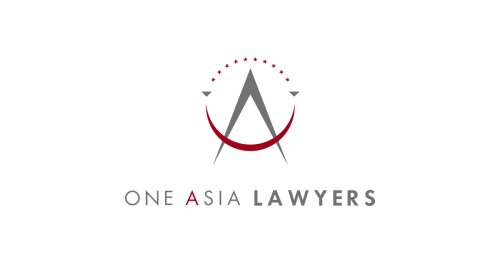Best Media and Entertainment Lawyers in Watthana
Share your needs with us, get contacted by law firms.
Free. Takes 2 min.
List of the best lawyers in Watthana, Thailand
About Media and Entertainment Law in Watthana, Thailand
Watthana, a vibrant district in the heart of Bangkok, is a key hub for Thailand's media and entertainment industry. Home to broadcasting studios, film production companies, recording facilities, advertising agencies, and a growing digital content scene, Watthana attracts local and international talent. Media and entertainment law here covers a range of legal disciplines, including intellectual property, contract law, regulatory compliance, defamation, censorship, and labor issues unique to the industry. Understanding your legal rights and responsibilities is vital whether you are an artist, producer, distributor, influencer, or business operating within this dynamic environment.
Why You May Need a Lawyer
The media and entertainment sector in Watthana is subject to rapidly evolving local and international laws. People often seek legal advice for reasons such as:
- Drafting, reviewing, or negotiating contracts for film, TV, music, or online content
- Protecting copyrights, trademarks, and other intellectual property
- Ensuring compliance with local broadcasting, censorship, and advertising regulations
- Resolving disputes over royalties, credits, or ownership rights
- Mitigating risks related to defamation, privacy, or data protection
- Negotiating sponsorship, licensing, or endorsement deals
- Guidance on hiring talent and labor issues
- Representation in case of content takedown or regulatory investigations
Legal professionals help safeguard your interests and ensure your projects are compliant and protected.
Local Laws Overview
Media and entertainment law in Watthana aligns with national legal frameworks but has local nuances due to the concentration of industry activity. Key legal areas include:
- Intellectual Property: Copyright and trademark laws protect creative works and brands. Registration with the Department of Intellectual Property is recommended.
- Content Censorship: The National Broadcasting and Telecommunications Commission (NBTC) and the Ministry of Culture enforce content standards, including film, radio, and television censorship for public morality and security reasons.
- Defamation and Privacy: Thai law provides strict penalties for both civil and criminal defamation. Privacy laws affect how personal information and likeness are used in media.
- Employment and Contracts: Labor laws govern work relationships, especially for freelancers, actors, and technical crew. Clear contracts in Thai and English are common practice.
- Broadcasting and Digital Media: Licensing is often required for broadcasters, and digital content must adhere to robust anti-fake news and cybersecurity regulations.
Local government may enforce additional permits or guidelines for public filming or events in the district.
Frequently Asked Questions
What types of media and entertainment activities require a license in Watthana?
Broadcasting, public film screenings, live music performances, and operating a production or distribution company generally require licenses or permits from government authorities.
How can I protect my copyright as a creator in Watthana?
While your work is protected upon creation, registering your copyright with the Department of Intellectual Property solidifies your claim and helps with enforcement in disputes.
Are there restrictions on foreign investment in the media sector?
Yes. Foreign ownership of media businesses is regulated, and there are caps on foreign shareholding in certain sectors such as broadcasting and print media.
What should I consider when signing a talent or licensing contract?
Ensure the contract clearly details payment terms, rights to works, duration, territory, and conditions for termination. Both Thai and English versions are recommended and should be reviewed by a lawyer.
What content is subject to censorship in Thailand?
Content that threatens national security, public morality, or royal reputation can be censored or banned. NBTC guidelines must be followed for TV, film, and online content shared in Watthana.
How can I resolve a dispute over royalties or credits?
Disputes can be addressed via negotiation, mediation, or through the courts. A lawyer specialized in media and entertainment can advise on the best course of action.
Can I use real people or locations in my production without permission?
Obtaining written consent is crucial to avoid defamation or privacy claims. Public locations may require permits from local authorities, especially for commercial shoots.
What are the risks of online defamation?
Both criminal and civil penalties apply for online defamation in Thailand. Expressing critical opinions online about individuals or organizations should be done with caution and legal awareness.
How are influencer marketing and advertising regulated?
Influencer marketing must comply with advertising standards, including disclosure requirements and prohibitions on false or misleading claims, as regulated by the Office of the Consumer Protection Board and other agencies.
Do freelancers and contractors have legal protections?
Yes, Thai labor law may apply to some freelance arrangements. Well-drafted contracts help ensure rights to payment, credits, and benefits are clearly defined and respected.
Additional Resources
For further information and support, consider the following resources:
- Department of Intellectual Property (DIP) - Handles copyright and trademark protections.
- National Broadcasting and Telecommunications Commission (NBTC) - Oversees broadcasting and telecommunications regulation.
- Ministry of Culture - Regulates censorship and film classifications.
- Office of the Consumer Protection Board (OCPB) - Governs advertising standards and consumer rights.
- Bangkok Metropolitan Administration (BMA) - Local permits for public events and filming.
- Thai Entertainment Lawyers Association - Professional network for legal practitioners in this field.
Next Steps
If you believe you need legal assistance with a media or entertainment matter in Watthana, start by gathering all relevant documents, such as contracts, licenses, correspondence, and evidence of your work. Make a list of specific questions or concerns. Seek out a lawyer who specializes in media and entertainment law, ideally with local experience in Watthana. An initial consultation can help you better understand your legal standing, available options, and estimated costs. Remain proactive in protecting your rights and ensure all future dealings are covered by clear, professionally drafted agreements.
Lawzana helps you find the best lawyers and law firms in Watthana through a curated and pre-screened list of qualified legal professionals. Our platform offers rankings and detailed profiles of attorneys and law firms, allowing you to compare based on practice areas, including Media and Entertainment, experience, and client feedback.
Each profile includes a description of the firm's areas of practice, client reviews, team members and partners, year of establishment, spoken languages, office locations, contact information, social media presence, and any published articles or resources. Most firms on our platform speak English and are experienced in both local and international legal matters.
Get a quote from top-rated law firms in Watthana, Thailand — quickly, securely, and without unnecessary hassle.
Disclaimer:
The information provided on this page is for general informational purposes only and does not constitute legal advice. While we strive to ensure the accuracy and relevance of the content, legal information may change over time, and interpretations of the law can vary. You should always consult with a qualified legal professional for advice specific to your situation.
We disclaim all liability for actions taken or not taken based on the content of this page. If you believe any information is incorrect or outdated, please contact us, and we will review and update it where appropriate.









